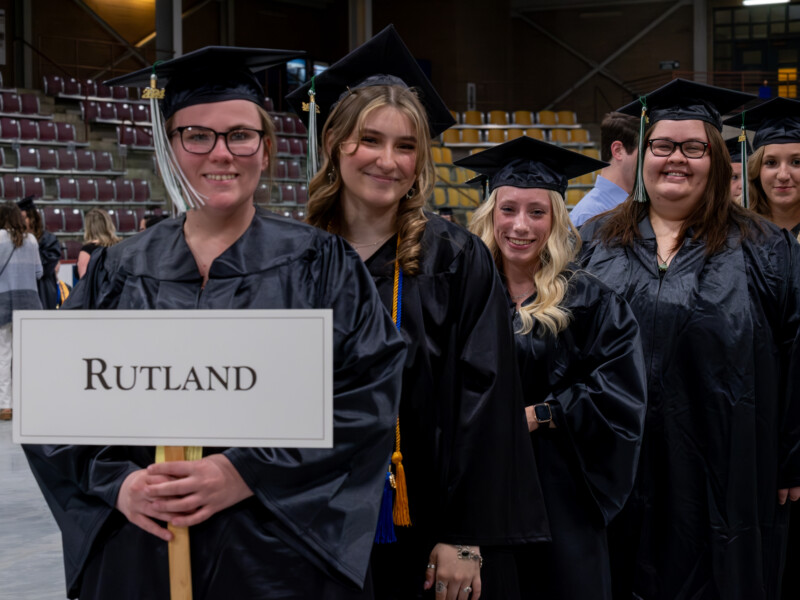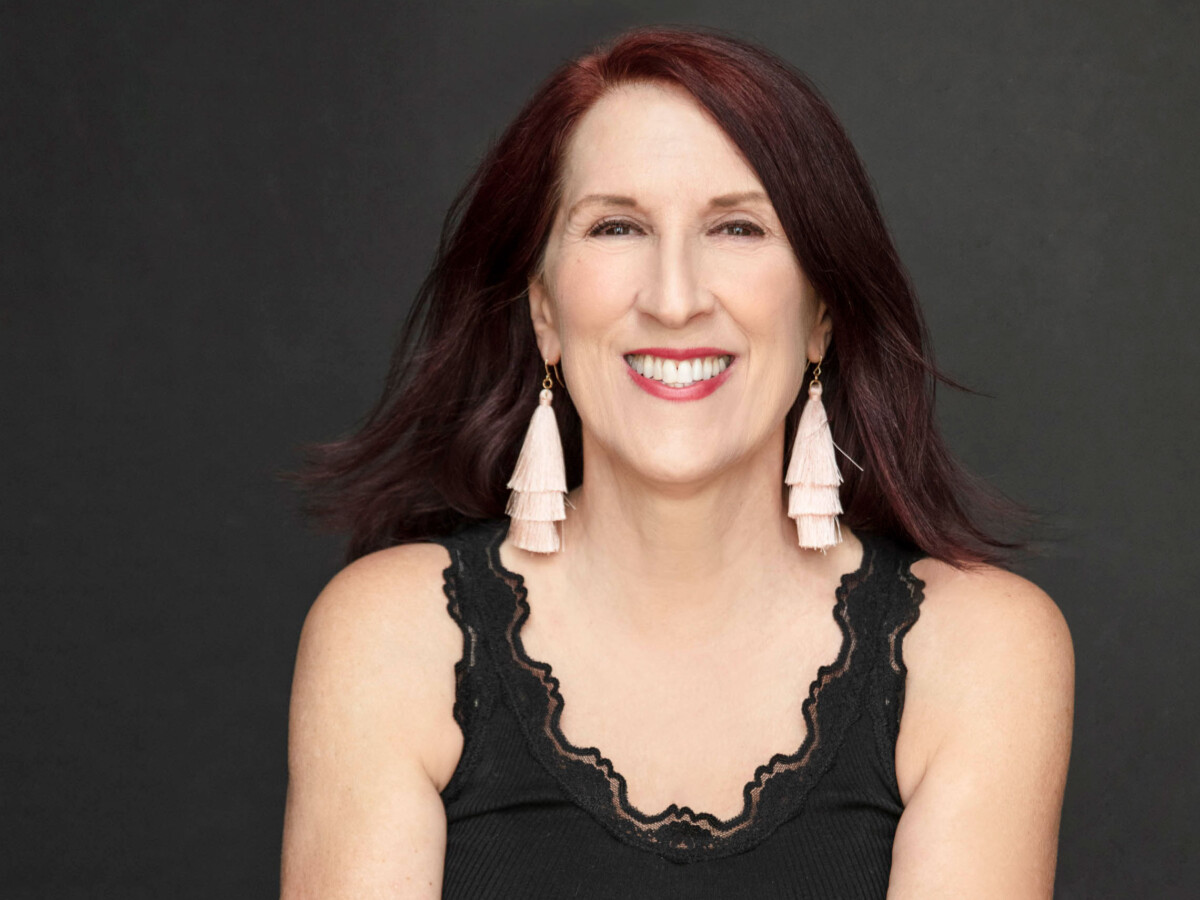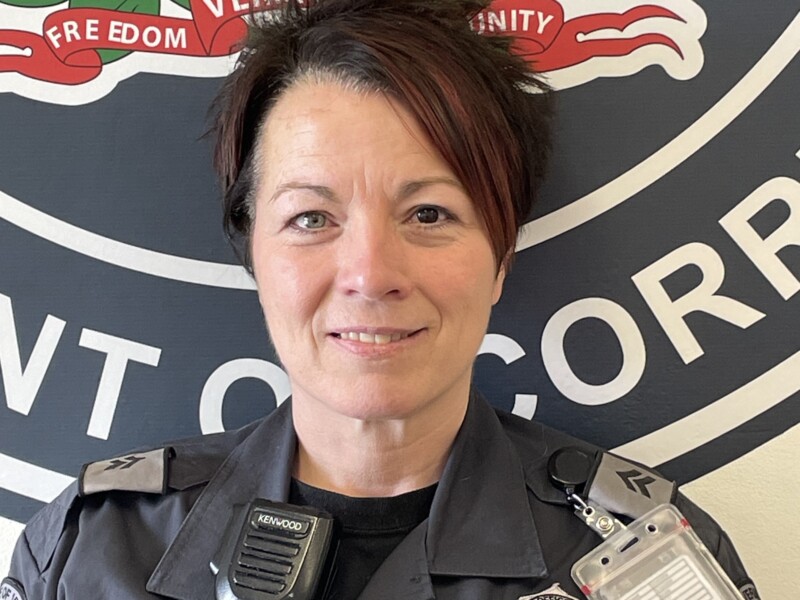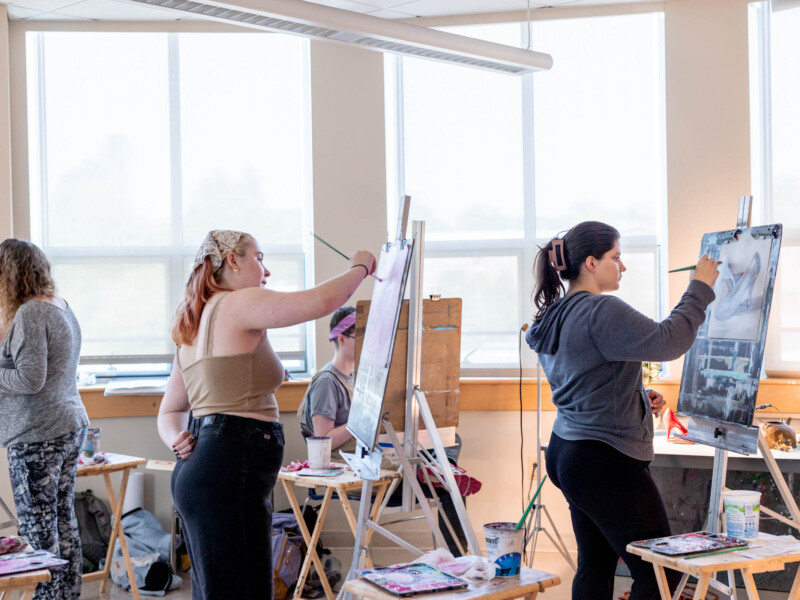
For Felicia Darling, ‘college’ isn’t just noun, it’s also a verb—as in ‘to college’: to dream of something better for yourself and your family. But as a young person growing up in poverty, despite her dream of one day earning a doctoral degree, she believed that college wasn’t a thing she could do, and it wasn’t a place where she belonged.
Felicia’s mother was raised in a farm family in the Northeast Kingdom, and when her own mother died, it was her brothers, not her, who got money to go to college. But “the seed was always there,” Felicia said, noting that her mother had always tried to instill the importance of education. “The problem with first-generation students is that their parents sometimes want that for them, but their fears of their lack of knowledge about how to support that all the way to the end—they just don’t have those skills, and that’s what happened to me.”
After high school Felicia experienced bouts of homelessness, working on farms in Northern Vermont and struggling to take care of herself. At 20, with a renewed determination to pursue college, she hitchhiked to UVM. She recalled wandering around the campus, growing increasingly discouraged. “I’m just walking around lost. Not only did I not know how to college, I didn’t know how to go to college,” she said. She returned to Newport, where “there were CCV signs everywhere. I signed up for two classes.”
“I didn’t find CCV—CCV found me,” she remembers. “I think that is a true mission of community college: they actually find you. They do outreach, they recruit. Here I am at UVM trying to find college, and I come back to Newport and CCV found me.”
At CCV, Felicia finally felt that she belonged. “The classes were inviting and welcoming. The administrative team is set up to keep you there and help you find your way. I definitely found community, and a lot of people working hard to support my goals.”
“Community college teaches you how to college,” she said. “CCV really put me on the way…CCV’s kind of transporting you to the next part of your education journey.” And it would prove to be just the beginning of a long and successful journey through higher education. Felicia moved on to a bachelor’s degree at Johnson State College (now Vermont State University) before completing a master’s in education at Lyndon State College (now Vermont State University). Craving more economic opportunity, she moved to California, where she earned a PhD from Stanford in 2016, at the age of 55.
After so much success, she says, “I still feel like a first-generation college student. Now I’m teaching that, writing books about that. It’s still part of my story, but I’m more the driver. Some of that is in the passenger seat in a way.” She tells the story of applying for a Fulbright scholarship to conduct an ethnographic study in Mexico. “A friend was like ‘just apply for a Fullbright,’ and I’m like ‘I can’t do that. I’m not a person who can do that.’ I think it’s hard for people who start from a survival situation…it’s hard to go from that identity to dreaming really big. I think that’s a journey that [people] who start at community college have to wrangle with, that whisper that’s your dream: try to turn up the volume on that, so you’re more courageous about dreaming big.”
And indeed, today it is Felicia’s personal mission to help students discover a sense of belonging in higher education. She teaches at a community college and at the University of California-Berkeley, and she has authored books about inclusive, trauma-informed instruction. This spring, Felicia celebrated the publication of her second book, Empathy Unchained™: Heal Your Trauma, Uplift the World. “I try to help people get to a place where they’re more responsive, they’re contemplating, they’re reflecting, they’re being empathetic and forgiving…there’s a social justice piece too,” she says. “I don’t think empathy and inclusion can be divorced. Everyone has a responsibility to look at their own implicit bias and analyze their own organizational structures that exclude, and make sure people who are marginalized are taken care of too.”
For Felicia, teaching—and bringing her own experience into the classroom—is also a form of social justice. “Just by being there, because I can empathize with people who are [experiencing poverty]. I understand the idea of othering, so I’m a little more careful about being inclusive and having trauma-informed instruction. I’m trying to help everyone understand that they belong.”
Learn more about Felicia Darling’s teaching and writing at feliciadarling.com.



